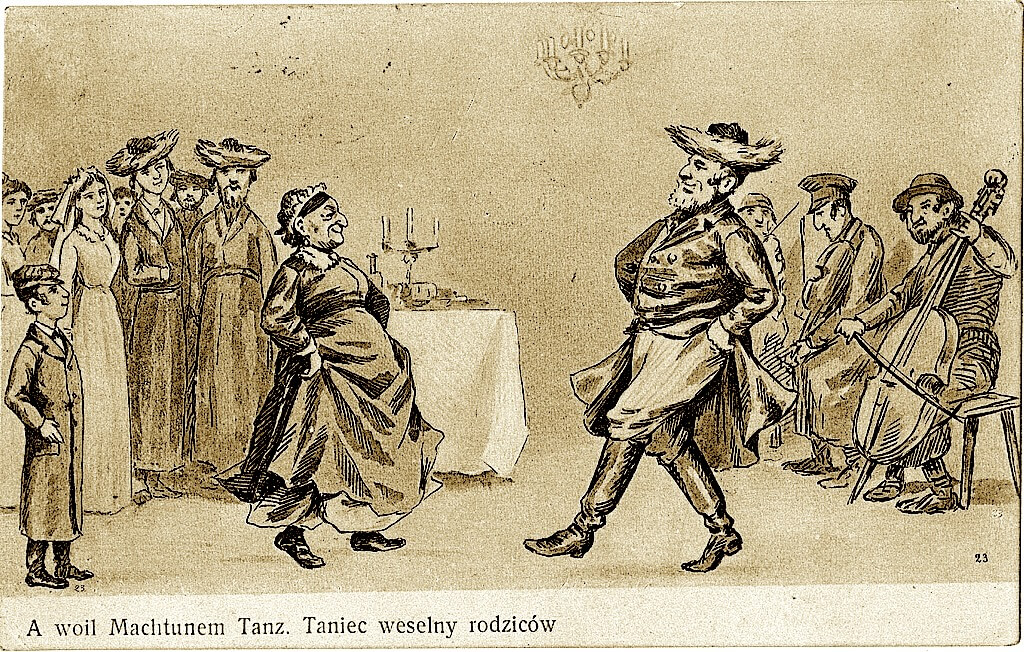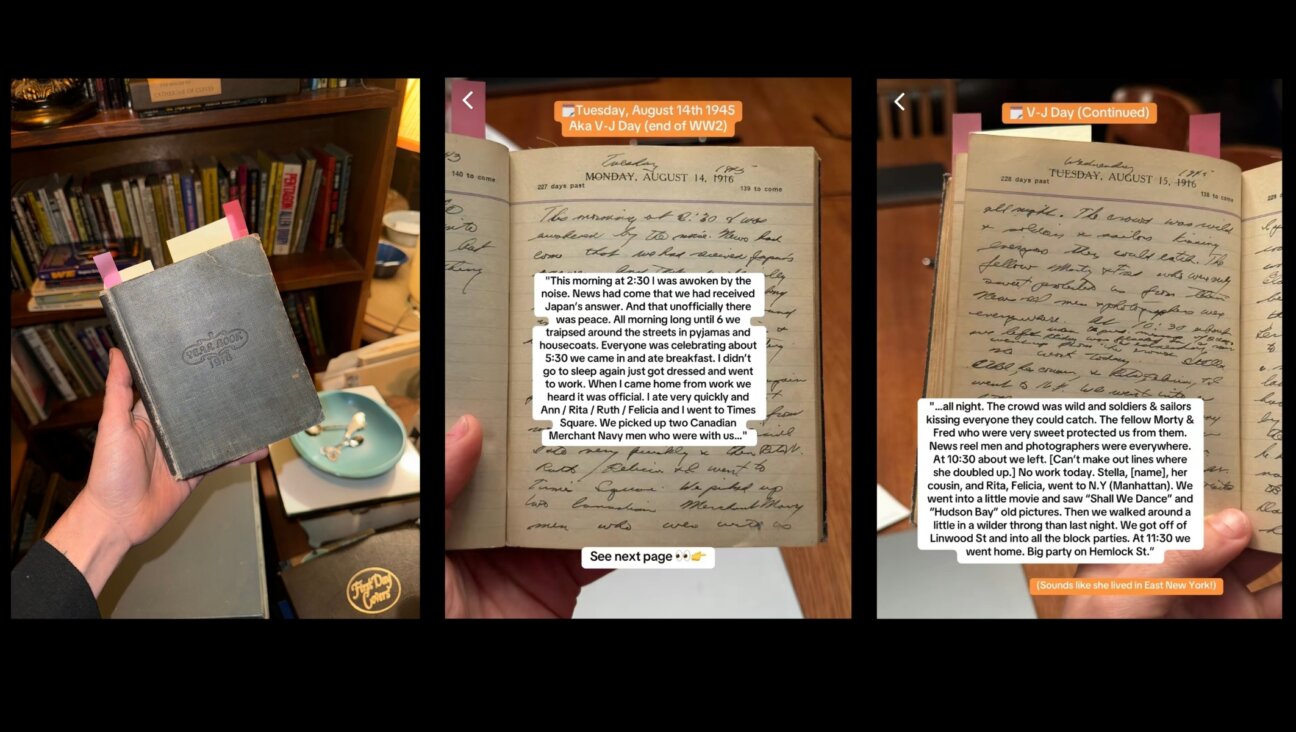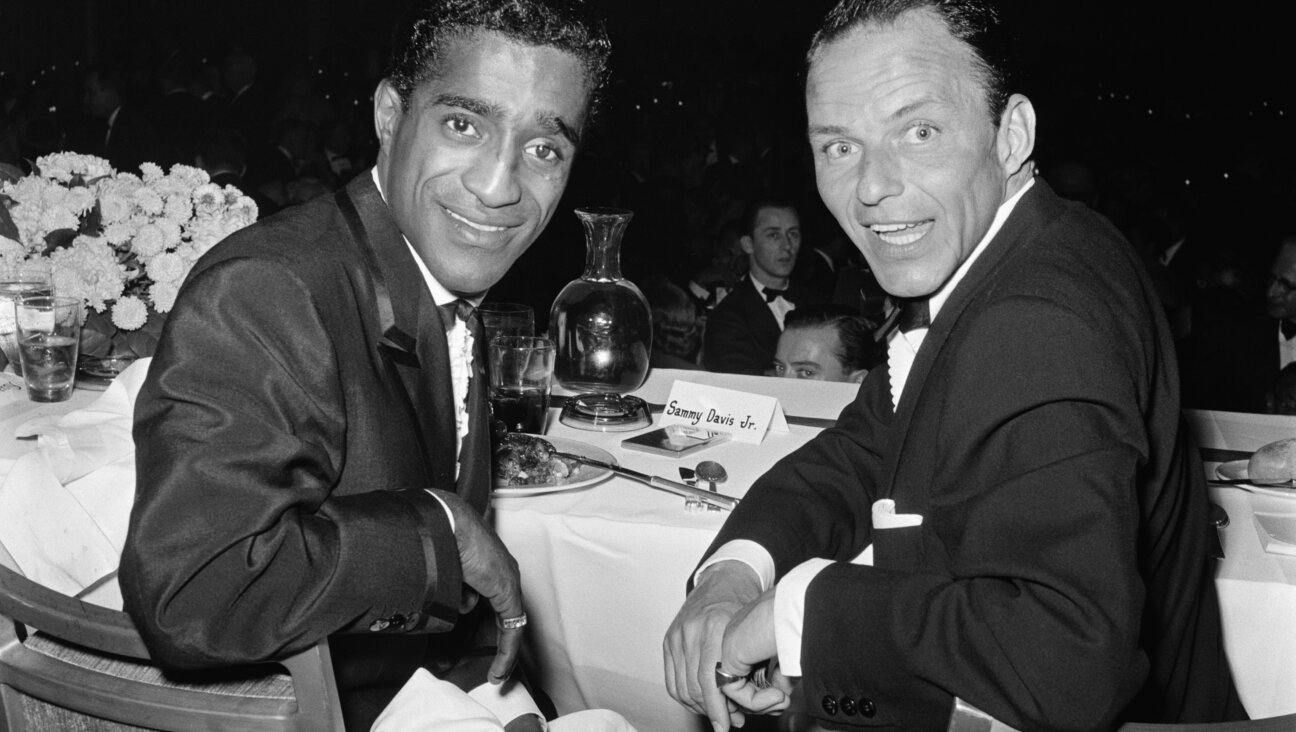Seeking Visions in a Contradictory Time
Since the beginning of the second intifada, American Jews have bumped along like an old tin can tied to the back of Israel’s jeep as it veers along the dusty road to who knows where. It’s been hard — but mind you, never as difficult as what Israelis go through — to adjust to the painful, seemingly unending saga of intifada and occupation over the years, to the point where we’re equally in despair of and exhausted by it. And this summer, apparently out of the blue, we entered a new reality.
Initially this new development in Lebanon came across as something we had not seen in years. This was a real war, “like in the old days” between Israel and “a truly vicious enemy,” as Israeli writer Etgar Keret declared in all irony, “not one fighting for its freedom and self-determination, not the kind that makes us stammer and throws us into confusion.”
Indeed, Sheikh Hassan Nasrallah came across as ominous, not only because of Hezbollah’s linkages to Syria and Iran, but because he showed that he would deliver what he promised. His boast that Tel Aviv would be the next target of his missiles was initially heard as bravado, but took on a more sinister quality as rockets fell on Hadera, way south of the usual targets in the north.
In response, we wanted Israel to fight back and crush Hezbollah, imagining a brief war in six days like in 1967, or a daring military operation like the Israeli commandos’ rescue of all of those hostages hijacked to Entebbe in 1976. But instead, with Hezbollah deeply embedded among civilians and lying in wait, what was to have been quick, precise and effective came across as brute and problematic, however unavoidable or justified. We recoiled from the images of suffering and of flight — extensive footage of Lebanese refugees, with only limited coverage of the situation in Israel — that evoked our own deeply ingrained refugee traumas.
So after a month of war we have ended up with a crisscross of emotions, with Lebanon in pieces and Hezbollah still a threat and Israel reviled in the European press. War is certainly hell. It hasn’t been pretty.
For the better part of the last half century, two things have united American Jewry: the Holocaust and Israel. While the Holocaust has continued to exert a powerful hold on the American Jewish psyche, Israel, particularly in the past 15 to 20 years, no longer serves to reliably rally American Jews or engender group solidarity. Instead it has come to elicit a wider range of reactions. But the Israel-Hezbollah war may have changed the story in a number of ways.
In recent years, American Jewry has been split between those who identify deeply with Israel and stand by her through thick and thin, and people who feel implicated and under siege emotionally due to Israel’s actions and thus distance themselves from this internal emotional strife. The first group, which traverses the right-left political split, came out in droves to support the recent emergency campaigns mounted by local federations in support of Israel. Included here are people who don’t normally show up at Israel fundraising events but who did this time because they had gotten a strong whiff of the big “what if” about Israel’s very existence being threatened, a thought that hasn’t reared its head since 1973.
These folks see Israel as embattled and justifiably defending its citizens. They were haunted by the idea that the Hezbollah-version of Islam could spell Israel’s imminent demise, with the perils of 1930-style appeasement flashing in the background. The Zionist narrative that has the clearest articulation is the one that says to assure that it never happens again, Israel must be strong and powerful. Within this framework, the way to be a good American Jew is to work hard to assure American support, irrespective of the prevailing political winds.
The second group of people includes those who have begun to exit altogether rather than to speak up. By now, with the 15-year roller coaster of the Oslo peace process, the second intifada, suicide bombs, the disengagement from Gaza, the Hamas election, the Palestinian strife and then the Israeli reengagement in Gaza, they’re writing off Israel and the Middle East as simply too intractable to fix.
When times are confusing, we fall back on narratives, and yet when the narratives are outdated or no longer apt, we’re left confused and groping for something plausible, worthy and true that helps us make sense of our experience and guides our actions.
In another time and place — say, 19th-century Europe — the political philosophers and ideologists would have set to work and crafted an old-new vision for such a contradictory time. Here in America we don’t turn to professional thinkers, but instead to marketing and communications professionals. In recent years it seems that there’s been more attention to fixing Israel’s public relations problem than to trying to create a Zionist narrative that speaks to our times.
The result is that the meaning of “Israel” is now up for grabs. A coherent and inspirational reinvention of Zionism needs to be on our collective agenda — just as much as political organizing, fundraising and public relations.
Bethamie Horowitz, a social psychologist, is research director for the Mandel Foundation.
A message from our Publisher & CEO Rachel Fishman Feddersen

I hope you appreciated this article. Before you go, I’d like to ask you to please support the Forward’s award-winning, nonprofit journalism during this critical time.
We’ve set a goal to raise $260,000 by December 31. That’s an ambitious goal, but one that will give us the resources we need to invest in the high quality news, opinion, analysis and cultural coverage that isn’t available anywhere else.
If you feel inspired to make an impact, now is the time to give something back. Join us as a member at your most generous level.
— Rachel Fishman Feddersen, Publisher and CEO






















